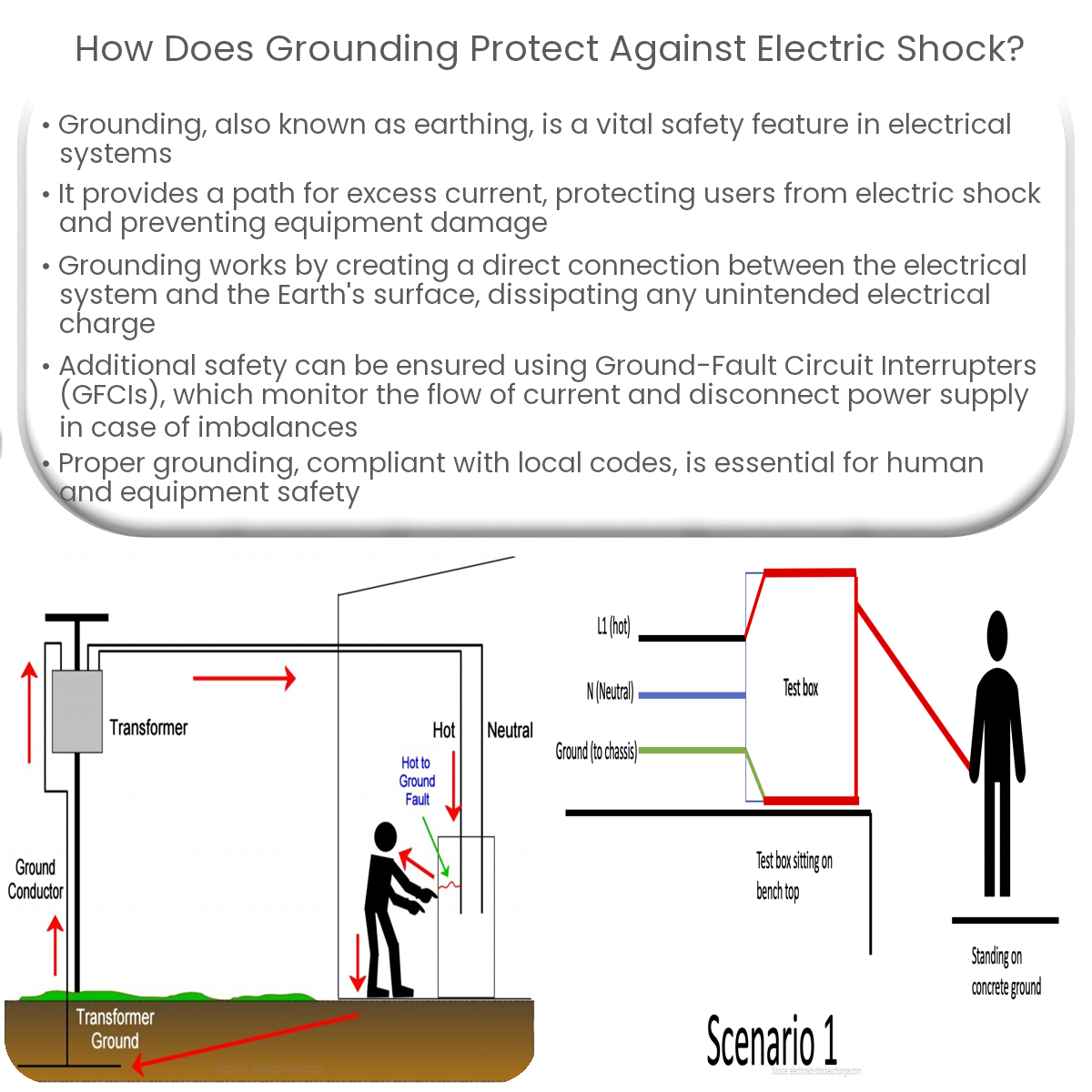Grounding protects against electric shock by providing a low-resistance path for excess current, maintaining equipotential bonding, and reducing risks.
Grounding: A Protective Measure Against Electric Shock
Grounding, also known as earthing, is an essential safety feature in electrical systems. It provides a safe path for excess current to flow, protecting users from electric shock, equipment from damage, and reducing the risk of fires. In this article, we will explore how grounding protects against electric shock.
Understanding Electric Shock
Electric shock occurs when a person comes into contact with an electrically energized conductor or a faulty electrical device, causing current to flow through their body. The severity of the shock depends on the current, voltage, and the duration of contact. In some cases, electric shock can be fatal.
How Grounding Works
Grounding creates a direct connection between an electrical system and the Earth’s surface. It utilizes a ground wire, which is typically green or bare copper, to create a low-resistance path for excess current to flow into the ground. This ensures that any unintended electrical charge is safely dissipated, reducing the risk of electric shock.
- Equipotential Bonding: Grounding helps maintain a uniform voltage level throughout the electrical system by connecting all metallic objects to the ground. This reduces the risk of electric shock due to potential differences between objects and ensures the safety of users.
- Fault Current Path: In case of a short circuit or equipment malfunction, grounding provides a low-resistance path for excess current to flow. This prevents hazardous voltage levels from building up in the electrical system and causing electric shock.
Ground-Fault Circuit Interrupters (GFCIs)
Grounding alone may not always provide complete protection against electric shock. Ground-fault circuit interrupters (GFCIs) are additional safety devices that constantly monitor the flow of current in a circuit. If they detect an imbalance between the incoming and outgoing current, indicating a possible ground fault, they quickly disconnect the power supply, preventing electric shock.
Importance of Proper Grounding
Proper grounding is essential for ensuring the safety of both people and equipment. It is vital to follow the local electrical codes and guidelines when installing grounding systems. Regular inspection and maintenance of grounding connections are also crucial to ensure their effectiveness in preventing electric shock.
In conclusion, grounding is an essential safety feature in electrical systems that protects against electric shock. By providing a low-resistance path for excess current and maintaining equipotential bonding, grounding minimizes the risk of electric shock, safeguarding lives and property.


